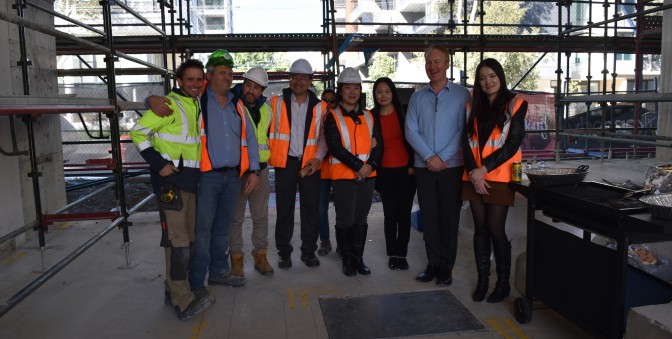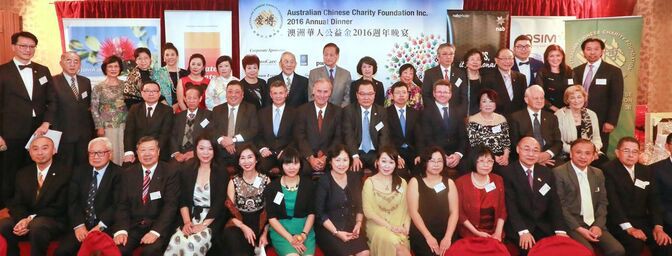
澳大利亚如何从中国增长经济中获利
As China’s industrialisation nears an end, demand for iron ore and other resources from Australia is off its peaks.
However, as industrialisation gives way to consumption demand from China’s growing number of newly rich, other sectors of Australia’s economy – and share market – could benefit.
Earlier this year, Beijing forecast economic growth of 7% for China’s 1.4bn people. Although the growth rate is more than triple that of Australia, it represents China’s slowest pace of growth in 15 years.
On a positive note, however, economists see the forecast as sustainable, a big tick for Australia’s key trading partner.
“Beijing is firmly committed to achieving around 7% GDP growth in 2015, a target set collectively by China’s top leaders which remains, in practice, politically binding,” said Wei Li, China and Asia economist at CommBank.
China’s new wealth
Li says China’s government is very willing to open the nation’s market to foreign companies offering quality goods and services at competitive prices.“Foreign companies are really only just beginning to tap this market,” Li says.
According to World Bank data, China’s gross national income was US$6,560 per person at the end of 2013, more than triple the US$2,060 from 10 years earlier and up exponentially from under US$700 per person 10 years before that.
In 1990, more than 60% of China’s population lived at or below the poverty line,described as US$1.25 a day. As of 2011, the latest World Bank data available, the figure had fallen to 6%.
However, the figures centre around wages whereas in many of China’s newly affluent families, wages are a small portion of income.
“You need to take capital gains from financial markets into account,” Li says.Low interest rates and the government’s market reforms have sent China’s sharemarkets soaring. For example, the Shanghai stock market’s benchmark index has risen 60% so far this year and 156% over the past 12 months.
“China’s domestic equity markets look frothy after more than doubling in 12 months,” analysts at fund manager BlackRock say in a report.“We prefer less expensive Hong Kong-listed Chinese equities, especially small- and medium-sized stocks, because they have suffered a liquidity discount that is set to dissipate [because investor access is to become easier].”
Australia hit hardest
Changes in China have led Australia’s economy to the early stages of transition as the Lucky Country’s decade-long mining boom, spurred by China’s need for steel to build apartments and other buildings, nears an end.
“There are secular headwinds for Australia,” says Steve Miller, head of Australian dollar bond portfolios at BlackRock.
“The Chinese economy is transitioning growth away from commodity-intensive sectors,” Miller says.
China buys one-third of Australia’s exports, leaving Australia more exposed than any other Group of 20 country to China’s economic slowdown and shift away from industrialisation.
“The result? We see an extended period of rising unemployment and sub-trend growth and believe a further RBA rate cut is likely,” BlackRock says, referring to the Reserve Bank of Australia.
The RBA has cut Australia’s benchmark interest rate to a historical low of 2%. The central bank has reduced rates by more than five full percentage points since late 2008 when it began easing monetary policy in response to the global financial crisis. The RBA recently said the nation’s unemployment rate would rise from its current level to about 6.5% and remain there for some time. It also forecast slower economic growth.
However, Australia’s unemployment rate unexpectedly fell to 6% in May as more women returned to work part-time and men found full-time jobs, government data showed.
Services in the spotlight
There are bright spots amid the gloom. China’s shifting demand could underpin sectors of the Australian economy other than resources, resulting in a healthier, more balanced economy based on services.
“Tourism and education are the obvious ones,” said Sean Fenton, portfolio manager at Tribeca Investment Management. In January, the latest government data available, about 71,000 visitors arrived in Australia from China, up nearly 13% over the year. Visitor visa applications are up more than 20%.
According to the government’s Tourism Australia, 709,000 visitors from China in 2013 spent $4.8bn. The agency’s Tourism 2020 strategy estimates spending by visitors from China could rise as high as $9bn in five years. Fenton said Sydney Airport (ASX: SYD) would benefit from increased arrivals from China and elsewhere.
“Qantas (ASX: QAN) and Virgin (ASX: VAH) would also benefit as visitors come to Australia and move around the country,” he said of the nation’s largest airlines. Hotel and resort operator Mantra Group (ASX: MTR) could also get a lift from stepped-up tourism.
Retail therapy
Retailers also benefit, according to Paul Xiradis, chief executive officer of Ausbil Investment Management. “The transition is such that what we are seeing is the Australian dollar, after being elevated for many many years, has come back around US75 cents,” Xiradis says. As a result of the weaker currency, more Australians are holidaying in their homeland. “For the first time in years, we’ve seen Australia’s net tourism pick up rather than decrease, so we have more people staying onshore, arriving onshore and spending onshore,” Xiradis says. “Therefore, that’s good for retailers overall, and that’s happening.”
Sydney the big winner
However, not everyone who comes to Australia from China is a visitor, and the really big winner from the demand for Australian housing and education is Sydney, Xiradis says. “We are finding more and more people trying to settle here and be educated here. That’s why demand here is pretty high,” he says.
“Part of the reason is Sydney is a fantastic destination and a fantastic place to live.” Builders are expected to construct more than 200,000 homes this year and next after housing starts reached a record 197,972 in 2014, and much of the activity is in Sydney.
“Home alterations and additions are increasing so that will be good for companies related to those activities as well,” Xiradis says.


